|
Books Should Be Free Loyal Books Free Public Domain Audiobooks & eBook Downloads |
|
|
Books Should Be Free Loyal Books Free Public Domain Audiobooks & eBook Downloads |
|
Non-fiction |
|---|
|
Book type:
Sort by:
View by:
|
By: Sarah Tyson Heston Rorer (1849-1937) | |
|---|---|
 Sandwiches
Sandwiches
| |
 Made-Over Dishes
Made-Over Dishes
| |
By: Edith Birkhead (1889-1951) | |
|---|---|
 Tale of Terror: A Study of the Gothic Romance
Tale of Terror: A Study of the Gothic Romance
A seminal essay on the development of horror as a genre, highly influential on later writers. | |
By: Peter Fisher (1782-1848) | |
|---|---|
 History of New Brunswick
History of New Brunswick
Originally published in 1825 under the title: Sketches of New Brunswick : containing an account of the first settlement of the province, with a brief description of the country, climate, productions, inhabitants, government, rivers, towns, settlements, public institutions, trade, revenue, population, &c., by an inhabitant of the province. The value of this history is in the fact that it was written when the Province was still in its infancy. Although there had been a few small settlements established in New Brunswick prior to 1783, the main influx of settlers were Loyalists who chose to remove to the area from the United States following the American Revolution. | |
By: Westminster Divines (1646) | |
|---|---|
 The Westminster Confession of Faith
The Westminster Confession of Faith
The Westminster Confession of Faith is a Reformed confession of faith, in the Calvinist theological tradition. Although drawn up by the 1646 Westminster Assembly, largely of the Church of England, it became and remains the 'subordinate standard' of doctrine in the Church of Scotland, and has been influential within Presbyterian churches worldwide. | |
By: Martha Summerhayes (1844-1911) | |
|---|---|
 Vanished Arizona: Recollections of the Army Life of a New England Woman
Vanished Arizona: Recollections of the Army Life of a New England Woman
This is the lively autobiography of Martha Summerhayes, the wife of an officer in the American Army. Here, she tells many stories about life and conditions in different camps and forts in which she lived with her expanding family, people along the way, and Journeys. | |
By: George Washington Sears (1821-1890) | |
|---|---|
 Woodcraft
Woodcraft
| |
By: William Carew Hazlitt (1834-1913) | |
|---|---|
 Old Cookery Books and Ancient Cuisine
Old Cookery Books and Ancient Cuisine
| |
By: Andrew Carnegie (1835-1919) | |
|---|---|
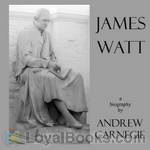 James Watt
James Watt
This biography of the inventor James Watt covers his early years, successes and failures, and legacy. | |
 Autobiography of Andrew Carnegie
Autobiography of Andrew Carnegie
This autobiography of Andrew Carnegie is a very well written and interesting history of one of the most wealthy men in the United states. He was born in Scotland in 1835 and emigrated to America in 1848. Among his many accomplishments and philanthropic works, he was an author, having written, besides this autobiography, Triumphant Democracy (1886; rev. ed. 1893), The Gospel of Wealth, a collection of essays (1900), The Empire of Business (1902), and Problems of To-day (1908)]. Although this autobiography was written in 1919, it was published posthumously in 1920. | |
By: Julian Stafford Corbett (1854-1922) | |
|---|---|
 Fighting Instructions, 1530-1816 Publications Of The Navy Records Society Vol. XXIX.
Fighting Instructions, 1530-1816 Publications Of The Navy Records Society Vol. XXIX.
| |
By: August F. Jaccaci | |
|---|---|
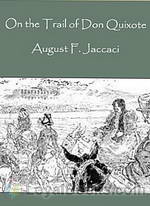 On the Trail of Don Quixote, Being a Record of Rambles in the Ancient Province of La Mancha
On the Trail of Don Quixote, Being a Record of Rambles in the Ancient Province of La Mancha
On the Trail of Don Quixote is an engaging 1890’s “record of rambles in the Ancient Province of La Mancha” by two artist friends, French author August Jaccaci and Spanish illustrator Daniel Vierge. “Both lovers of the book wherein are recounted the adventures of the good Knight and of his faithful Squire,” as Jaccaci explains, the two men set out to record -Jaccaci in evocative prose, and Vierge in pen and ink drawings - their exploration of the landmarks of Cervantes’ “immortal romance... | |
By: Samuel J. Record | |
|---|---|
 The Mechanical Properties of Wood Including a Discussion of the Factors Affecting the Mechanical Properties, and Methods of Timber Testing
The Mechanical Properties of Wood Including a Discussion of the Factors Affecting the Mechanical Properties, and Methods of Timber Testing
| |
By: Daniel Carter Beard (1850-1941) | |
|---|---|
 Shelters, Shacks and Shanties
Shelters, Shacks and Shanties
| |
By: Arthur Cheney Train (1875-1945) | |
|---|---|
 Courts and Criminals
Courts and Criminals
| |
By: Candace Wheeler (1827-1923) | |
|---|---|
 How to make rugs
How to make rugs
| |
By: Henry Edward Krehbiel (1854-1923) | |
|---|---|
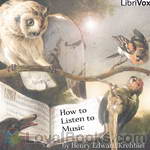 How to Listen to Music
How to Listen to Music
This book is "not written for professional musicians, but for untaught lovers of the art". It gives broad instruction on composers, styles, instruments, venues - and when to believe the critics. | |
By: Margaret Sanger (1879-1966) | |
|---|---|
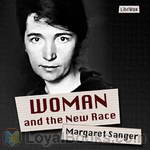 Woman and the New Race
Woman and the New Race
Margaret Sanger was an American sex educator and nurse who became one of the leading birth control activists of her time, having at one point, even served jail time for importing birth control pills, then illegal, into the United States. Woman and the New Race is her treatise on how the control of population size would not only free women from the bondage of forced motherhood, but would elevate all of society. The original fight for birth control was closely tied to the labor movement as well as the Eugenics movement, and her book provides fascinating insight to a mostly-forgotten turbulent battle recently fought in American history. | |
By: Philip Melanchthon (1597-1560) | |
|---|---|
 The Augsburg Confession
The Augsburg Confession
The Augsburg Confession is the first and most fundamental Confession of the Lutheran Church. It was composed for a public reading at the Diet of Augsburg on June 25, 1530. Although written by Melanchthon, it was presented as the official answer of the undersigned German princes to the summons of Emperor Charles V. Two copies were presented on the same day, one in German, the other in Latin. This work translates a conflation of the German and Latin texts and was prepared for the Concordia Triglotta of 1921. (Introduction by Jonathan Lange) | |
 A Treatise on the Power and Primacy of the Pope
A Treatise on the Power and Primacy of the Pope
The Treatise on the Power and Primacy of the Pope (1537) (Latin, Tractatus de Potestate et Primatu Papae), The Tractate for short, is the seventh Lutheran credal document of the Book of Concord. Philip Melanchthon, its author, completed it on February 17, 1537 during the assembly of princes and theologians in Smalcald. | |
By: Agnes von Blomberg Bensly | |
|---|---|
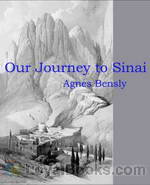 Our Journey to Sinai
Our Journey to Sinai
Fortress-walled Saint Catherine's monastery on the Sinai peninsula has been a pilgrimage site since its founding by the Byzantine Emperor Justinian in the 6th century. According to tradition, the monastery sits at the base of the mountain where Moses received the Tablets of the Law. Set in rugged country, accessible in times past only by a many days journey by camel across barren desert, the monastery survived intact through the centuries, and, as a result, became a rich repository of religious history—told through its icons, mosaics, and the books and manuscripts in the monastery library... | |
By: Frank Henderson | |
|---|---|
 Six Years in the Prisons of England
Six Years in the Prisons of England
A Merchant talks about daily life inside prisons of England, describes routines and how prisoners are treated. He notes stories of how fellow prisoners came to be in prison, and his ideas about the penal system, its downfalls and ways to improve it. The reader can see similarities to the problems we still have in regarding "criminals" today. (Introduction by Elaine Webb) | |
By: W. H. (William Herbert) Simmons | |
|---|---|
 The Handbook of Soap Manufacture
The Handbook of Soap Manufacture
| |
By: Amelia Simmons (c. 1700s-1800s) | |
|---|---|
 American Cookery
American Cookery
American Cookery, by Amelia Simmons, was the first known cookbook written by an American, published in 1796. Until this time, the cookbooks printed and used in what became the United States were British cookbooks, so the importance of this book is obvious to American culinary history, and more generally, to the history of America. The full title of this book was: American Cookery, or the art of dressing viands, fish, poultry, and vegetables, and the best modes of making pastes, puffs, pies, tarts, puddings, custards, and preserves, and all kinds of cakes, from the imperial plum to plain cake: Adapted to this country, and all grades of life. (Description from Wikipedia) | |
By: S. Baring-Gould (1834-1924) | |
|---|---|
 Curious Myths of the Middle Ages
Curious Myths of the Middle Ages
This volume is an example of Sabine Baring-Gould's extensive research into the middle ages. This volume of 12 curiosities was one of Baring-Gould's most successful publications. | |
By: Eliza Leslie (1787-1858) | |
|---|---|
 Directions for Cookery, in its Various Branches
Directions for Cookery, in its Various Branches
| |
 Seventy-Five Receipts for Pastry, Cakes and Sweetmeats, by Miss Leslie
Seventy-Five Receipts for Pastry, Cakes and Sweetmeats, by Miss Leslie
| |
By: St. Catherine of Genoa (1447-1510) | |
|---|---|
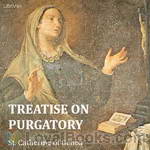 Treatise on Purgatory
Treatise on Purgatory
Saint Catherine of Genoa (Caterina Fieschi Adorno, born Genoa 1447 – 15 September 1510) is an Italian Roman Catholic saint and mystic, admired for her work among the sick and the poor. She was a member of the noble Fieschi family, and spent most of her life and her means serving the sick, especially during the plague which ravaged Genoa in 1497 and 1501. She died in that city in 1510.In 1551, 41 years after her death, a book about her life and teaching was published, entitled Libro de la vita mirabile et dottrina santa de la Beata Caterinetta de Genoa... | |
By: William Wood (1864-1947) | |
|---|---|
 Chronicles of Canada Volume 31 - All Afloat: A Chronicle of Craft and Waterways
Chronicles of Canada Volume 31 - All Afloat: A Chronicle of Craft and Waterways
No exhaustive Canadian 'water history' can possibly be attempted here. That would require a series of its own. But at least a first attempt will be made to give some general idea of what such a history would contain in fuller detail: of the kayaks and canoes the Eskimos and Indians used before the white man came, and use today; of the small craft moved by oar and sail that slowly displaced those moved only by the paddle; of the sailing vessels proper, and how they plied along Canadian waterways,... | |
By: William Charles Henry Wood (1864-1947) | |
|---|---|
 Draft of a Plan for Beginning Animal Sanctuaries in Labrador
Draft of a Plan for Beginning Animal Sanctuaries in Labrador
| |
By: Milo M. Hastings (1884-1957) | |
|---|---|
 The Dollar Hen
The Dollar Hen
| |
By: James Anthony Froude (1818-1894) | |
|---|---|
 Short Studies on Great Subjects
Short Studies on Great Subjects
| |